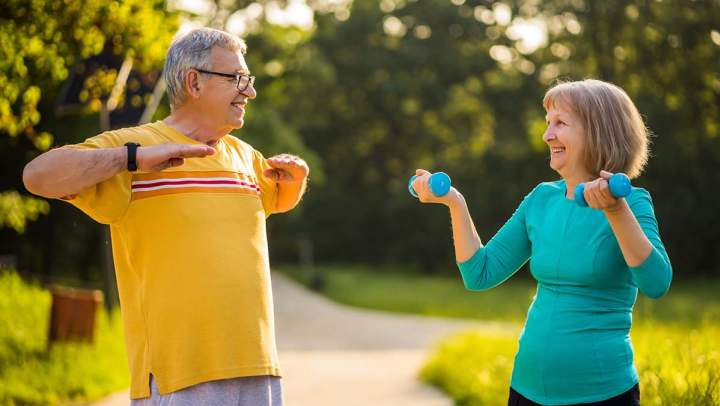We all know that engaging in moderate daily exercise is important to healthy aging. It makes us feel better, look better, and function more efficiently. And yet many don’t realize the clear benefits that exercise brings to our brains and cognition.
Exercise is even more important for individuals with dementia.
Studies cited in the National Library of Medicine note an abundance of evidence showing that physical exercise is “a strong gene modulator that induces structural and functional changes in the brain, determining enormous benefit on both cognitive functioning and wellbeing.”
That means that for individuals living with dementia, such as Alzheimer’s disease, exercise takes on an even more important role. A program of regular exercise increases oxygen to the brain, which can slow neurodegeneration and help them retain higher levels of cognition longer.
Here are some additional benefits of regular exercise:
- Increases and maintains muscle strength.
- Improves coordination and balance.
- Helps maintain a healthy weight.
- Improves the quality of sleep.
- Improves overall sense of well-being.
Family caregivers often ask our Anthem communities how they can encourage their loved ones with dementia to exercise more often to gain some of these benefits.
We have summarized eight tips from the National Institute on Aging that family caregivers can use to get their loved ones moving:
- Take the lead and get the activity started. Exercise alongside them if possible.
- Instead of one long work-out, consider breaking it down into short “mini-workouts” to make it more enjoyable and less taxing.
- Add some of their favorite music to the workouts. That will help set the tone and keep them motivated.
- One of the best forms of exercise is walking. A short daily walk is good for family caregivers as well. And it has the added advantage of scenery and fresh air.
- If your loved one walks alone, make sure they always have their Alzheimer’s disease ID bracelet on which includes your phone number and any other information to help them if they should become confused and wander.
- Consider tuning in to exercise TV shows or videos that specialize in physical fitness for older adults. A benefit is that you can create a schedule and work out together every day at the same time.
- Make sure the workouts you select are easy to follow. Break them down into simple steps.
- Be sure to keep your loved one (and yourself) hydrated. Have a bottle of water handy.
If your loved one has mobility issues, there are plenty of resources to help you create an exercise plan that accommodates their ability level. It is always important to consult your loved one’s physician before embarking on any exercise regimen. They can help you design a program that meets your loved one’s needs and considers all aspects of their health.
Regardless of our age and abilities, our bodies were designed to move. Moderate daily exercise that matches ability levels benefits everyone!
Since 2009,
Anthem Memory Care has been a haven for loved ones who need memory and dementia care. Our experienced, professional team expands over 20 communities with more than 1,300 suites designed for memory care needs. Each community offers numerous helpful amenities and resources, creating a nurturing and supportive environment that caters to the needs of our residents. Along with compassionate and personalized
memory care, we provide services in areas of wellness, health, and safety. We invite you to explore our services or contact us today if you have any questions.
